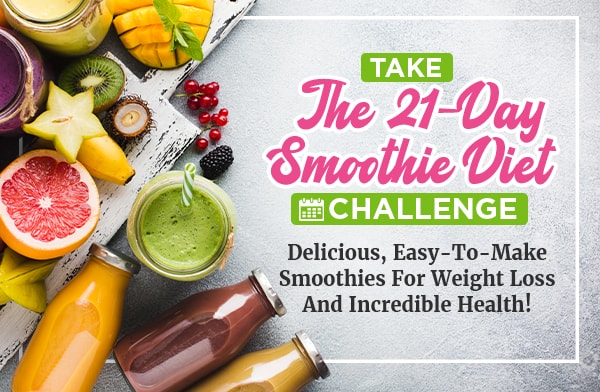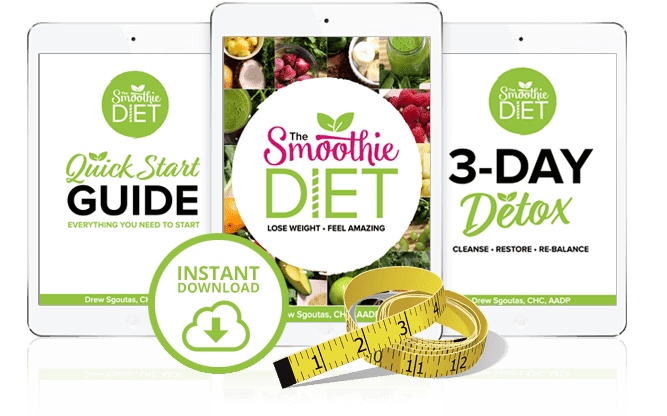What Are The Best and Healthiest Seeds to Add to Smoothies?
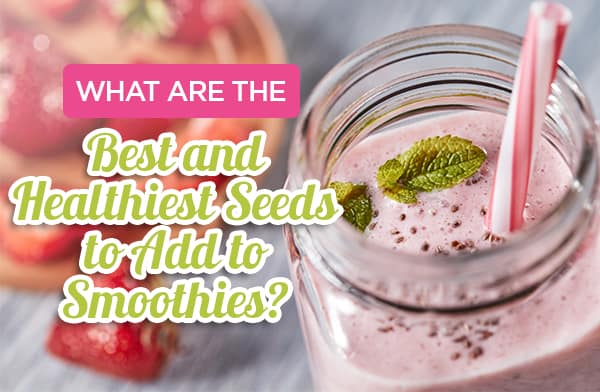
Seeds are great sources of healthy fats, vegetarian protein, fiber, and antioxidant polyphenols. They can also help reduce the risk of certain diseases. In particular, the lignans in certain seeds may help lower cholesterol and even cancer risk.
These six seeds are all easy to add to smoothies and can be an easy way to add healthy nutrients to your diet:
- Chia seeds
- Sesame seeds
- Sunflower seeds
- Hemp seeds
- Flaxseeds
- Pumpkin seeds
The only question is, how do you add these to your smoothies the right way?
How to Prepare Your Seeds
While some of these seeds don’t need to be ground for you to get their nutritional benefits, others will. Before we crack into the nutritional value adding these seeds to your smoothies will give you, here are the best ways to prepare them:
The timing of when you add the chia seeds into your smoothie makes a difference to the consistency and texture of your chia smoothie. For example, adding raw chia seeds at the start of blending will let them soak longer in the smoothie mix and give them more time to be milled by your blender (which makes the smoothie thicker). If you have a low-powered blender or prefer a more liquid smoothie, add your chia seeds towards the end of the blending.
Grinding and blending sesame seeds into a smoothie makes their nutrients much more absorbable by the body. You can grind your sesame seeds using a mortar and pestle or a spice/coffee grinder. If you have a high-power blender, this may not be necessary. Dry toasting them on the stove takes only a few minutes and really helps to add depth to the smoothie.
Sunflower seeds have a mild, nutty flavor and a firm but tender texture. Add sunflower seeds to a small bowl and cover with water. Let sit at room temperature overnight. Drain seeds and transfer them to a blender. This sprouts the seeds.
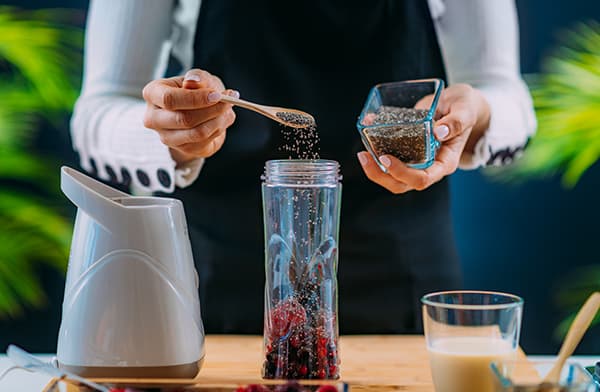
When sunflower seeds are sprouted, their plant compounds increase. Sprouting also reduces factors that can interfere with mineral absorption. You can buy sprouted, dried sunflower seeds online or in some stores.
Hemp seeds are the low-maintenance children of the seeds world. They are already in their perfect state to sprinkle into your smoothie jar along with other ingredients. Blend everything together and go to town.
While you can eat whole flaxseeds, they don’t digest as well as ground flaxseed. If you don’t digest the tiny seeds, you won’t reap the nutritional and health benefits they offer. Most supermarkets and health food stores sell ground flaxseed, but if you buy them whole, grind them in a coffee grinder before adding them to your smoothie.
The evening before you plan on adding pumpkin seeds to your morning smoothie, add them to a small bowl and cover with water. Let the seeds sit at room temperature overnight and drain the water before adding them to your blender.
Caloric Value
Here’s the caloric value based on a one-ounce (28 gram) serving of each seed:
- Chia seeds: 137
- Sesame seeds: 162
- Sunflower seeds: 164
- Hemp seeds: 155
- Flaxseeds: 152
- Pumpkin seeds: 151
Chia Seeds
Chia seeds are all the rage right now, and rightly so. These tiny superfoods are a great addition to your diet as part of smoothies and even salads or baked goods. They also make great pre-workout fuel.
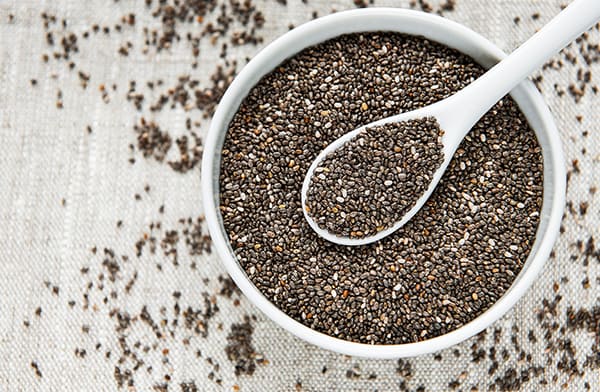
The nutritional value of a one-ounce (28-gram) serving of chia seeds contains:
- Fiber: 10.6 grams
- Protein: 4.4 grams
- Monounsaturated fat: 0.6 grams
- Omega-3 fats: 4.9 grams
- Omega-6 fats: 1.6 grams
- Thiamine (vitamin B1): 15% of the RDI
- Magnesium: 30% of the RDI
- Manganese: 30% of the RDI
General health benefits
Chia seeds may help reduce blood sugar. A couple of studies have shown that whole and ground chia seeds are equally effective for reducing blood sugar right after eating them. Another study found that, as well as reducing blood sugar, chia seeds may reduce appetite.

They may also reduce the risk factors of heart disease. A study of 20 people with type 2 diabetes found that eating 37 grams of chia seeds per day for 12 weeks reduced blood pressure and levels of several inflammatory chemicals, including C-reactive protein (CRP).
Chia seeds contain several important antioxidant polyphenols. In addition, one study has shown that chia seeds may be able to increase levels of EPA in the blood.
Sesame Seeds
Sesame seeds are rich in many minerals, such as copper, magnesium, and zinc. Why do we care? Because just these three minerals help provide relief for rheumatoid arthritis and support vascular, respiratory, and bone health, on top of other health benefits.
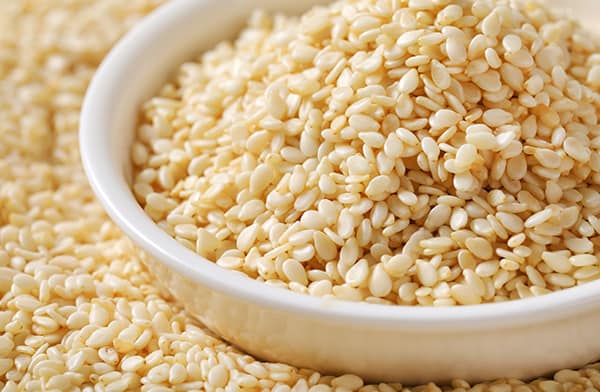
The nutritional value of a one-ounce (28-gram) serving of sesame seeds contains:
- Fiber: 3.3 grams
- Protein: 5 grams
- Monounsaturated fat: 5.3 grams
- Omega-6 fats: 6 grams
- Copper: 57% of the RDI
- Manganese: 34% of the RDI
- Magnesium: 25% of the RDI
Sesame seeds also contain many different polyphenols, especially lignans, which act as important antioxidants in the body. Lignans, as well as the fiber and omega-3 fats in flaxseeds, can all help reduce cholesterol and other risk factors for heart disease.
General health benefits
Sesame seeds may also help reduce inflammation and oxidative stress, which can worsen symptoms of many disorders, including arthritis.
One study showed that people with knee osteoarthritis had significantly fewer inflammatory chemicals in their blood after eating about 40 grams of sesame seed powder every day for two months.
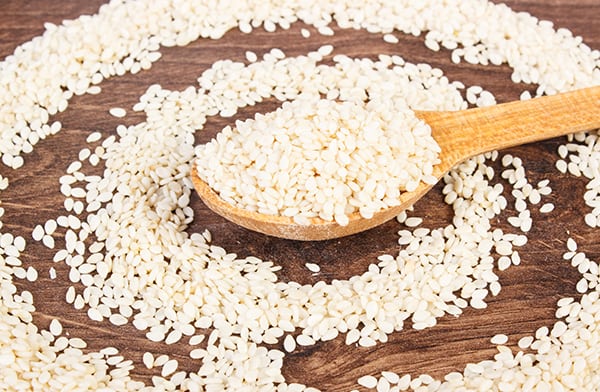
Another recent study found that after eating about 40 grams of sesame seed powder per day for 28 days, semi-professional athletes had significantly reduced muscle damage and oxidative stress, as well as increased aerobic capacity.
Health benefits for women
A couple of interesting studies have shown that sesamin from sesame seeds may get converted by your gut bacteria into another type of lignan called enterolactone. Enterolactone can act like the sex hormone estrogen, and lower-than-normal levels of this lignan in the body have been associated with heart disease and breast cancer.
Another study found that postmenopausal women who ate 50 grams of sesame seed powder daily for five weeks had significantly lower blood cholesterol and improved sex hormone status.
Sunflower Seeds
There are two main types of sunflower crops. One type is grown for the seeds you eat, while the other is grown for the oil. The sunflower seeds you eat are encased in inedible black-and-white striped shells, also called hulls. Those used for extracting sunflower oil have solid black shells.
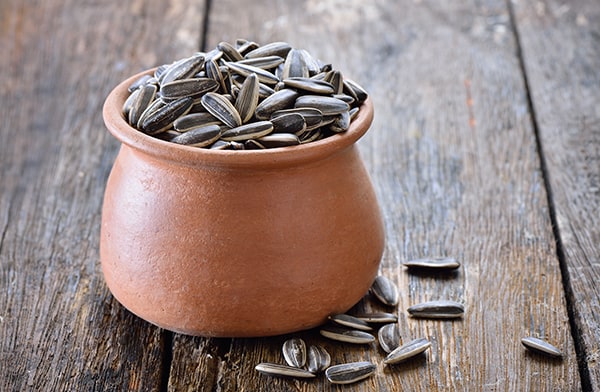
The nutritional value of a one-ounce (28-gram) serving of sunflower seeds contains:
- Fiber: 2.4 grams
- Protein: 5.8 grams
- Monounsaturated fat: 5.2 grams
- Omega-6 fats: 6.4 grams
- Vitamin E: 47% of the RDI
- Manganese: 27% of the RDI
- Magnesium: 23% of the RDI
General health benefits
Sunflower seeds may be associated with reduced inflammation in middle-aged and older people, which may help reduce the risk of heart disease. An observational study of more than 6,000 adults found that a high intake of nuts and seeds was associated with reduced inflammation. In particular, consuming sunflower seeds more than five times per week was associated with reduced levels of C-reactive protein (CRP), a key chemical involved in inflammation.
By the end of the study, both the almond and sunflower seed groups had experienced reduced total cholesterol and LDL cholesterol. The sunflower seed diet reduced triglycerides in the blood more than the almond diet.

However, “good” HDL cholesterol was also reduced, suggesting that sunflower seeds may reduce both good and bad types of cholesterol.
A good reason to eat sunflower seeds in moderation is their cadmium content. This heavy metal can harm your kidneys if you’re exposed to high amounts over a long period. Though allergies to sunflower seeds are relatively uncommon, some cases have been reported. Reactions may include asthma, mouth swelling, itching of the mouth, hay fever, skin rashes, lesions, vomiting, and anaphylaxis.
Hemp Seeds
Hemp hearts (also referred to as hemp hearts) are easy to digest, and just looking at them makes me feel so healthy.
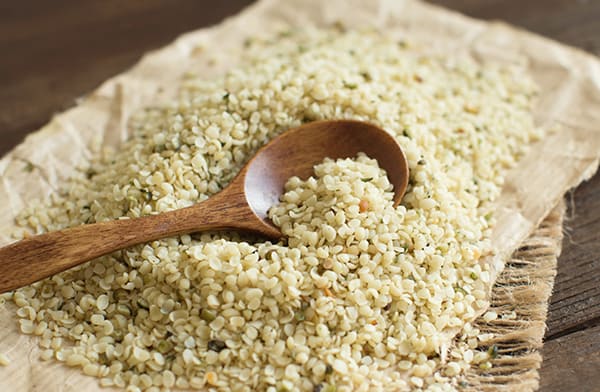
The nutritional value of a one-ounce (28-gram) serving of hemp seeds contains:
- Fiber: 1.1 grams
- Protein: 8.8 grams
- Monounsaturated fat: 0.6 grams
- Polyunsaturated fat: 10.7 grams
- Magnesium: 45% of the RDI
- Thiamine (vitamin B1): 31% of the RDI
- Zinc: 21% of the RDI
General health benefits
Hemp seeds are a great source of magnesium, which helps regulate your heartbeat and is linked to the prevention of coronary heart disease. They also contain linoleic acid, which one study found reduced participants’ cholesterol levels by 15% and may act to reduce blood pressure.
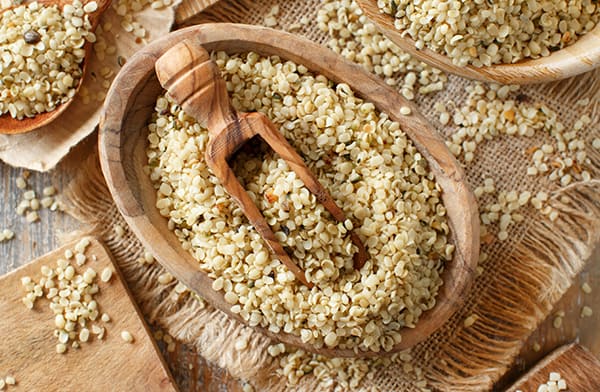
They’re also an excellent source of vegetarian protein. In fact, they are one of the few plants that are complete protein sources, meaning they contain all the essential amino acids that your body can’t make. Studies have also shown that the protein quality of hemp seeds is better than most other plant protein sources.
Hemp seeds contain omega-3s and omega-6s, as well as help with metabolism. Hemp seeds also contain gamma-linolenic acid, an important anti-inflammatory fatty acid.
Flaxseeds
Flaxseeds, also known as linseeds, are a superfood that might just be better for you than kale. It contains omega-3s (particularly alpha-linolenic acid ALA), lignans, and fiber, among other benefits.
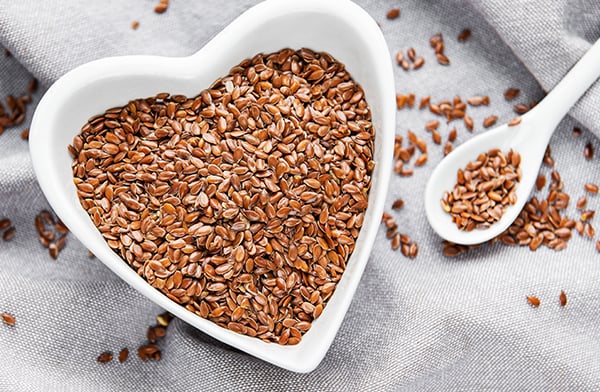
The nutritional value of a one-ounce (28-gram) serving of flaxseeds contains:
- Protein: 5.2 grams
- Fiber: 7.8 grams
- Monounsaturated fat: 2.1 grams
- Omega-3 fats: 6.5 grams
- Omega-6 fats: 1.7 grams
- Manganese: 35% of the RDI
- Thiamine (vitamin B1): 31% of the RDI
- Magnesium: 28% of the RDI
General health benefits
Flaxseeds, like sesame seeds, also contain a lot of lignans, particularly one called sesamin. In fact, sesame seeds are the best-known dietary source of lignans, which act as important antioxidants in the body.
Lignans, as well as the fiber and omega-3 fats in flaxseeds, can all help reduce cholesterol and other risk factors for heart disease. One large study combined the results of 28 others, finding that consuming flaxseeds reduced levels of “bad” LDL cholesterol by an average of 10 mmol/l.
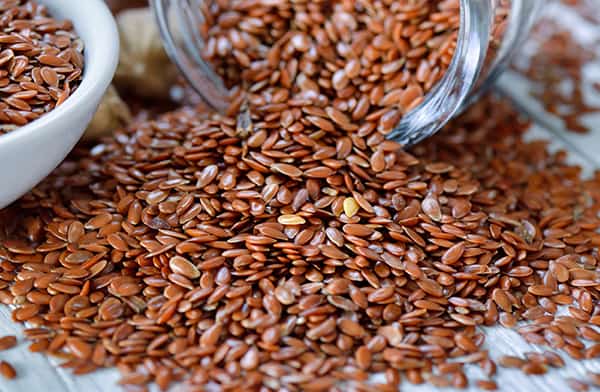
Flaxseeds may also help reduce blood pressure. An analysis of 11 studies found that flaxseeds could reduce blood pressure, especially when eaten whole every day for more than 12 weeks.
Health benefits for women
A couple of studies have shown that eating flaxseeds may reduce markers of tumor growth in women with breast cancer and may also reduce cancer risk. This may be due to the lignans in flaxseeds. Lignans are phytoestrogens and are similar to the female sex hormone estrogen. What’s more, similar benefits have been shown regarding prostate cancer in men.
In addition to reducing the risk of heart disease and cancer, flaxseeds may also help reduce blood sugar, which may help lower the risk of diabetes.
Pumpkin Seeds
Pumpkin seeds are also known as “pepita” — a Mexican Spanish term. Unlike the hard white seeds from a carving pumpkin, most pumpkin seeds bought at the supermarket don’t have a shell. Instead, these shell-free seeds are green, flat, and oval.
The shelled version has slightly higher amounts of zinc and more carbohydrates (not always a bad thing). However, both have lots of antioxidants and antimicrobial benefits. Translation: eat pumpkin seeds when everyone around you is starting to get sick.
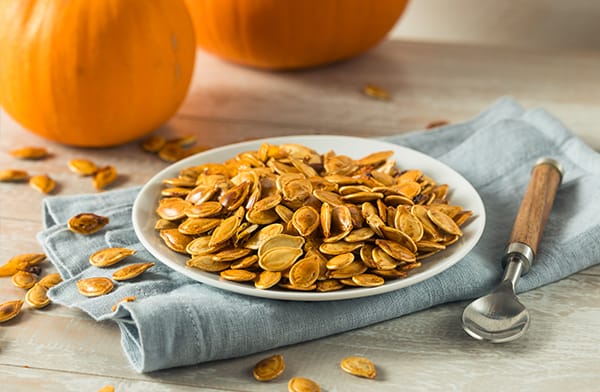
The nutritional value of a one-ounce (28-gram) serving of pumpkin seeds contains:
- Fiber: 1.7 grams
- Protein: 7 grams
- Monounsaturated fat: 4 grams
- Omega-6 fats: 6 grams
- Manganese: 42% of the RDI
- Magnesium: 37% of the RDI
- Phosphorus: 33% of the RDI
General health benefits
Pumpkin seeds are one of the most commonly consumed types of seeds and are good sources of phosphorus, monounsaturated fats, and omega-6 fats.
Pumpkin seeds are also good sources of phytosterols, which are plant compounds that may help lower blood cholesterol.
These seeds have been reported to have several health benefits, likely due to their wide range of nutrients. One observational study of more than 8,000 people found that those with a higher intake of pumpkin and sunflower seeds had a significantly reduced risk of breast cancer.
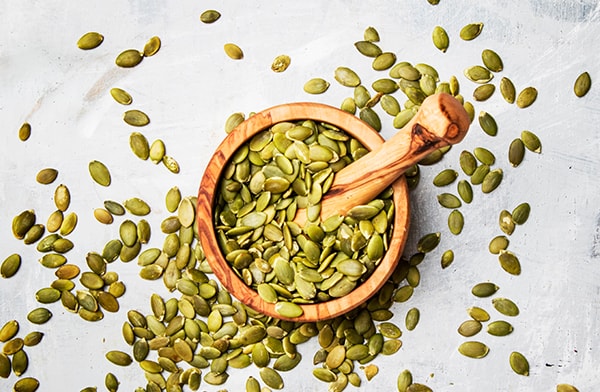
In addition, pumpkin seeds are an excellent source of magnesium. Adequate magnesium levels have also been associated with better sleep.
Some small studies have found that taking a magnesium supplement improved sleep quality and total sleep time in people with low magnesium levels.
Health benefits for men
Pumpkin seeds are also high in antioxidants and other nutrients that contribute to healthy testosterone levels and improve overall health. Together, all these factors may benefit fertility levels and reproductive function, especially in men.
Bonus Round
Another seed with strong nutritional value that you can add to your smoothie is wheat germ. Wheat germ is the seed from wheat, but it has more vitamins and minerals and fewer carbs, making it a win-win. Mix it in your smoothie for a boost in B1, B6, fiber, and even some protein.
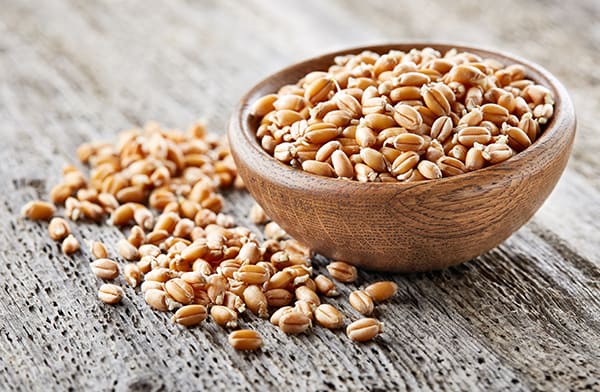
Any other seeds you can think of that would be worth adding to my list? Be sure to let me know! Or, if you have any great smoothie recipes to share that incorporate any of these seeds, I’d love to hear about them!
Feel free to reach out and contact me at any time if you ever have any questions about smoothie-related topics! I’d be more than happy to assist you however I possibly can!
